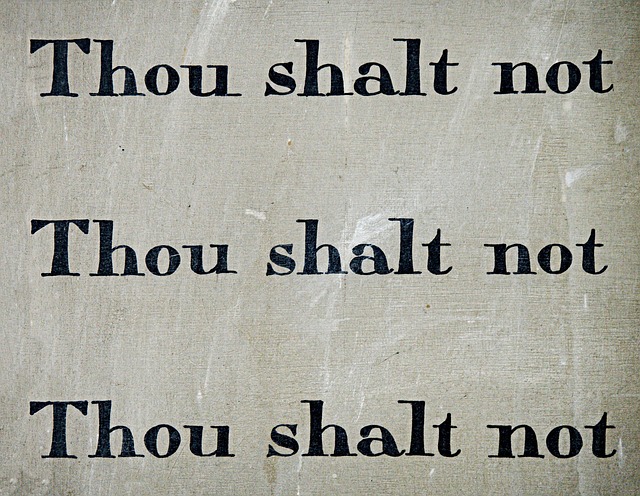Oregon's legal framework defines contempt of court as willful actions obstructing justice, categorized into direct (courtroom disobedience) and indirect (outside courtroom but impacting process). Offenses are punished based on severity, from fines to jail time. The process involves filing a petition, issuing summons, hearing both sides, and judge determination using clear standards of proof for fair resolutions.
In the legal framework of Oregon, understanding contempt of court is paramount for maintaining judicial order. This article delves into the state’s definition of this powerful legal concept, exploring how it distinguishes between civil and criminal contempt. We examine various types of offenses, from willful disobedience to failure to comply with court orders. Additionally, we guide readers through the proof and punishment guidelines, as well as the procedural steps for charges, ensuring a comprehensive understanding of Oregon’s legal framework regarding contempt.
- Legal Definition of Contempt in Oregon
- Types of Contempt of Court Offenses
- Proof and Punishment Guidelines
- Procedural Steps for Contempt Charges
Legal Definition of Contempt in Oregon

In Oregon, contempt of court is defined within the state’s legal framework as a willful act or omission that obstructs or interferes with the administration of justice. This includes actions such as disobeying a court order, disrupting proceedings, or failing to comply with subpoena requests. The key element is the intent to defie or disregard the court’s authority and procedures, which can lead to severe penalties for those found in contempt.
Oregon’s legal system recognizes two types of contempt: direct and indirect. Direct contempt occurs when someone engages in disruptive behavior inside the courtroom, while indirect contempt involves actions outside the court that impact the judicial process. Punishments for contempt can range from fines to jail time, depending on the severity of the offense and the specific circumstances.
Types of Contempt of Court Offenses

In Oregon, contempt of court offenses are categorized into two main types within the state’s legal framework. The first type involves direct contempt, which occurs when an individual willfully disobeys or interferes with a court order or proceeding. This can include actions like refusing to testify, disrupting courtroom proceedings, or failing to follow specific court mandates. Direct contempt is typically punished on the spot with fines or even immediate imprisonment to ensure compliance and maintain judicial authority.
The second type is indirect or constructive contempt, where an individual fails to act in accordance with a court order that is clear and unambiguous. This might involve not paying child support as ordered, failing to turn over evidence, or ignoring a subpoena. Punishments for indirect contempt are usually more formal and can include periodic check-ins with the court, fines, or even jail time if the contemnor fails to rectify their non-compliance. These distinctions play a crucial role in how Oregon’s legal system addresses and manages contempt of court cases.
Proof and Punishment Guidelines

In Oregon, the legal framework for contempt of court is defined by state laws and court rules, which outline the standards of proof and punishment guidelines. To establish contempt, the prosecution must prove beyond a reasonable doubt that an individual willfully violated a court order or engaged in conduct that obstructed the administration of justice. This includes direct disobedience of court orders, such as refusing to comply with a subpoena or failing to appear in court when summoned.
Punishment for contempt of court in Oregon can vary depending on the severity of the offense and can include fines, imprisonment, or both. The court may also order restitution to compensate any harmed parties. The legal framework emphasizes the importance of due process, ensuring that individuals are fully informed of their rights and the nature of the allegations against them before any punishment is imposed. This comprehensive approach helps maintain the integrity of the judicial system while providing a fair and just resolution for all involved.
Procedural Steps for Contempt Charges

In Oregon, the procedural steps for filing contempt of court charges are clearly outlined within the state’s legal framework. The process begins with a petition or motion filed by a party involved in a legal dispute, alleging that another party has failed to comply with a court order. This can include non-payment of financial obligations, failure to turn over evidence, or disobedience of other specific court mandates. Once the motion is submitted, the court reviews it and may issue a summons, requiring the alleged contemnor to appear before the judge.
During the subsequent hearing, both parties present their cases, with legal arguments and evidence. The judge evaluates the circumstances, considering whether the actions or inaction of the defendant constitutes contempt. If the court finds the defendant guilty beyond a reasonable doubt, it can issue sanctions, ranging from fines to imprisonment, depending on the severity of the offense. This structured approach ensures that due process is followed, providing a fair and transparent legal outcome in cases of alleged contempt in Oregon.
